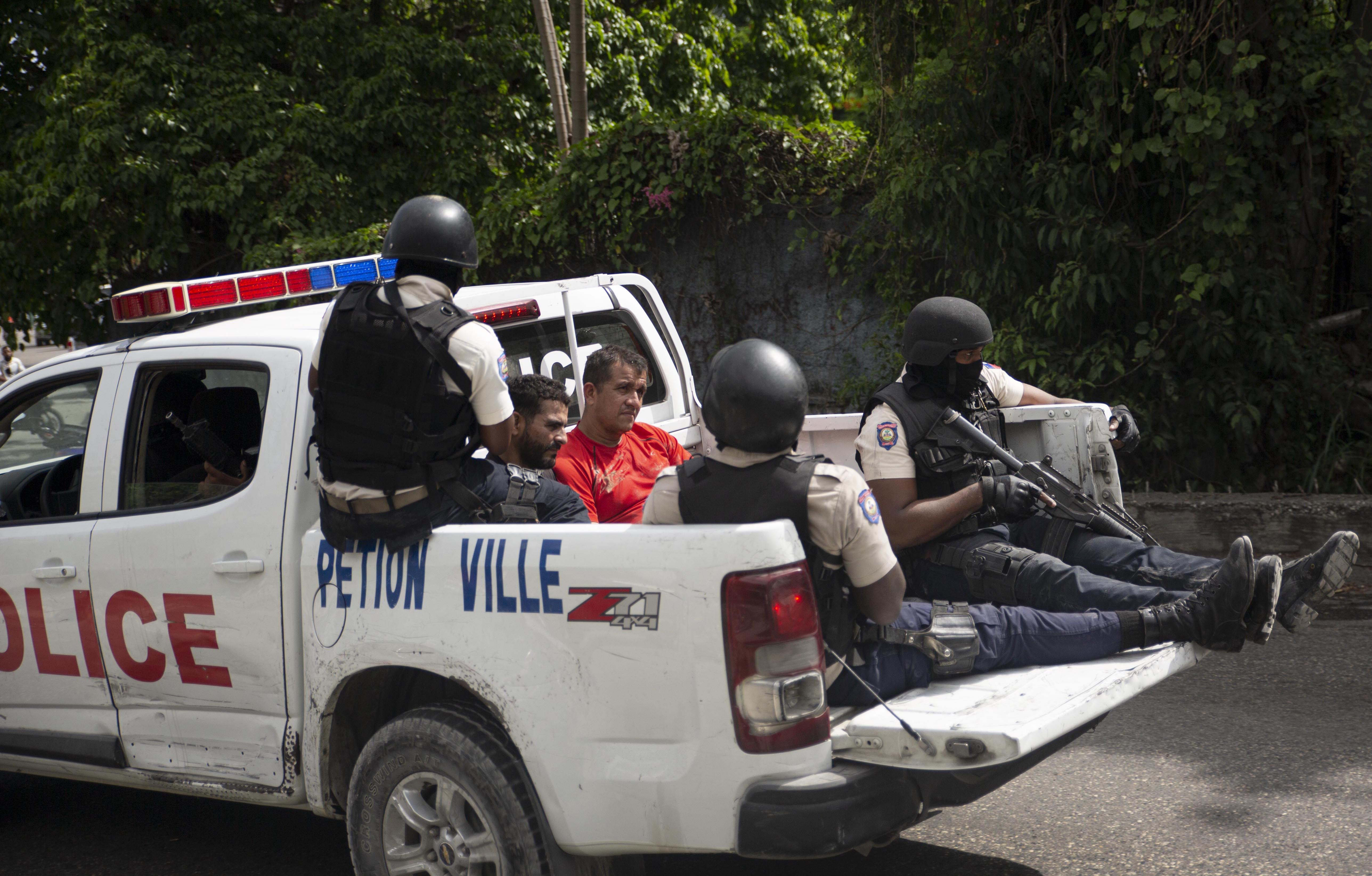17 arrested in slaying of Haitian president, including 2 Haitian Americans


A free daily email with the biggest news stories of the day – and the best features from TheWeek.com
You are now subscribed
Your newsletter sign-up was successful
Seventeen people have been arrested in connection with the assassination of Haitian President Jovenel Moïse, including two men believed to be Haitian Americans, officials said Thursday.
Moïse was shot and killed early Wednesday morning by gunmen who stormed his home near Port-au-Prince. During a Thursday night press conference, Léon Charles, chief of Haiti's National Police, said 15 of the detained suspects are from Colombia. The suspects were in the room with him, handcuffed and sitting on the floor. Charles also said three suspects were killed by police and eight remain at large.
One of suspects has been identified as 35-year-old James Solages, The Associated Press reports. Solages is the founder of a south Florida charity that describes him as a "certified diplomatic agent" who previously worked as a bodyguard for the Canadian Embassy in Port-au-Prince. The embassy did not respond to AP's request for comment.
The Week
Escape your echo chamber. Get the facts behind the news, plus analysis from multiple perspectives.

Sign up for The Week's Free Newsletters
From our morning news briefing to a weekly Good News Newsletter, get the best of The Week delivered directly to your inbox.
From our morning news briefing to a weekly Good News Newsletter, get the best of The Week delivered directly to your inbox.
Witnesses told AP that two of the suspects were captured in Port-au-Prince on Thursday by bystanders who saw them hiding in bushes. The crowd then set fire to two bullet-riddled cars, and Charles asked the public Thursday night to stay calm through the turmoil and not destroy evidence.
Officials blamed the assassination on "a highly trained and heavily armed group." The Haitian newspaper Le Nouvelliste reports that Moïse was shot 12 times and his bedroom ransacked, citing a judge involved in the investigation, Carl Henry Destin. Two workers in the house were tied up, and Moïse's daughter, Jomarlie, hid during the attack in her brother's bedroom.
Haiti is one of the world's poorest countries, and since the assassination, the streets of Port-au-Prince have been largely empty. Residents hiding in their homes say they believe if the president can't be protected, neither can they.
Moïse dissolved parliament in January 2020 and was ruling by decree, and the opposition had been calling on him to step down. Under Haiti's constitution, the head of the Supreme Court would have replaced Moïse, but the chief justice recently died of COVID-19. Interim Prime Minister Claude Joseph assumed leadership after Moïse's death, but he was supposed to be replaced on Wednesday by neurosurgeon Ariel Henry, who was named prime minister by Moïse on Tuesday. During an interview with AP, Henry said the situation is confusing, but he is "the prime minister in office."
A free daily email with the biggest news stories of the day – and the best features from TheWeek.com
Catherine Garcia has worked as a senior writer at The Week since 2014. Her writing and reporting have appeared in Entertainment Weekly, The New York Times, Wirecutter, NBC News and "The Book of Jezebel," among others. She's a graduate of the University of Redlands and the Columbia University Graduate School of Journalism.
-
 Local elections 2026: where are they and who is expected to win?
Local elections 2026: where are they and who is expected to win?The Explainer Labour is braced for heavy losses and U-turn on postponing some council elections hasn’t helped the party’s prospects
-
 6 of the world’s most accessible destinations
6 of the world’s most accessible destinationsThe Week Recommends Experience all of Berlin, Singapore and Sydney
-
 How the FCC’s ‘equal time’ rule works
How the FCC’s ‘equal time’ rule worksIn the Spotlight The law is at the heart of the Colbert-CBS conflict
-
 Rubio boosts Orbán ahead of Hungary election
Rubio boosts Orbán ahead of Hungary electionSpeed Read Far-right nationalist Prime Minister Viktor Orbán is facing a tough re-election fight after many years in power
-
 Key Bangladesh election returns old guard to power
Key Bangladesh election returns old guard to powerSpeed Read The Bangladesh Nationalist Party claimed a decisive victory
-
 Epstein files topple law CEO, roil UK government
Epstein files topple law CEO, roil UK governmentSpeed Read Peter Mandelson, Britain’s former ambassador to the US, is caught up in the scandal
-
 Iran and US prepare to meet after skirmishes
Iran and US prepare to meet after skirmishesSpeed Read The incident comes amid heightened tensions in the Middle East
-
 EU and India clinch trade pact amid US tariff war
EU and India clinch trade pact amid US tariff warSpeed Read The agreement will slash tariffs on most goods over the next decade
-
 Israel retrieves final hostage’s body from Gaza
Israel retrieves final hostage’s body from GazaSpeed Read The 24-year-old police officer was killed during the initial Hamas attack
-
 China’s Xi targets top general in growing purge
China’s Xi targets top general in growing purgeSpeed Read Zhang Youxia is being investigated over ‘grave violations’ of the law
-
 Panama and Canada are negotiating over a crucial copper mine
Panama and Canada are negotiating over a crucial copper mineIn the Spotlight Panama is set to make a final decision on the mine this summer
